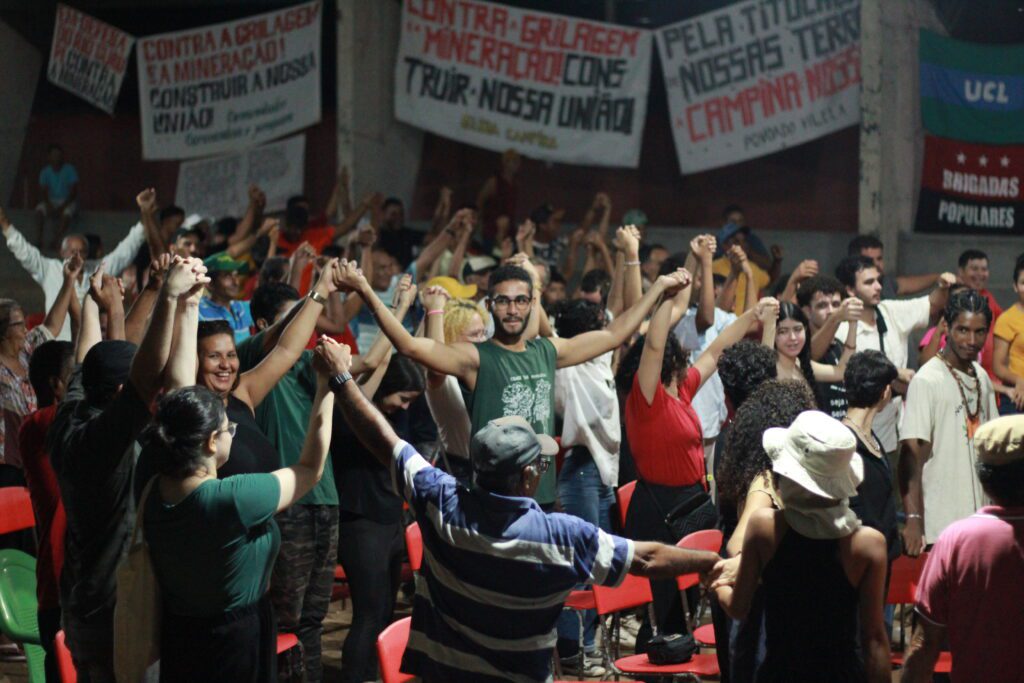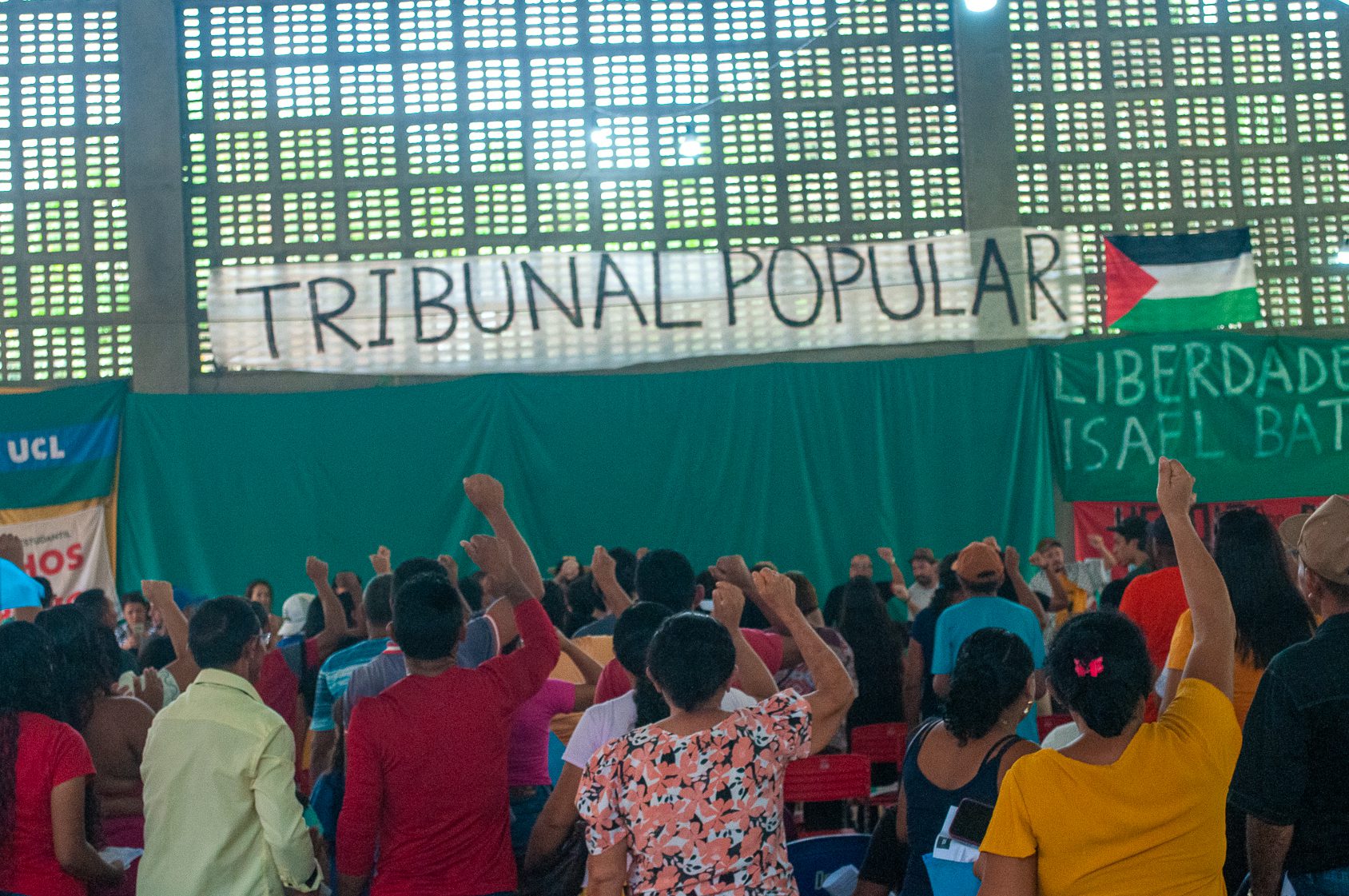On March 9 and 10, the victorious Popular Court against grabbing and the landlord crimes was held in Vilela village in Junco do Maranhão. The event was attended by popular lawyers, researchers, trade unionists and journalists from other regions of the country who participated in the court's judging committee.
The Court also had the participation of different organizations, such as the Union of Communities in Fight and the Student Collective Filhos do Povo, who organized students to attend the event. The peasant leadership Luiz Vila Nova also attended the event.
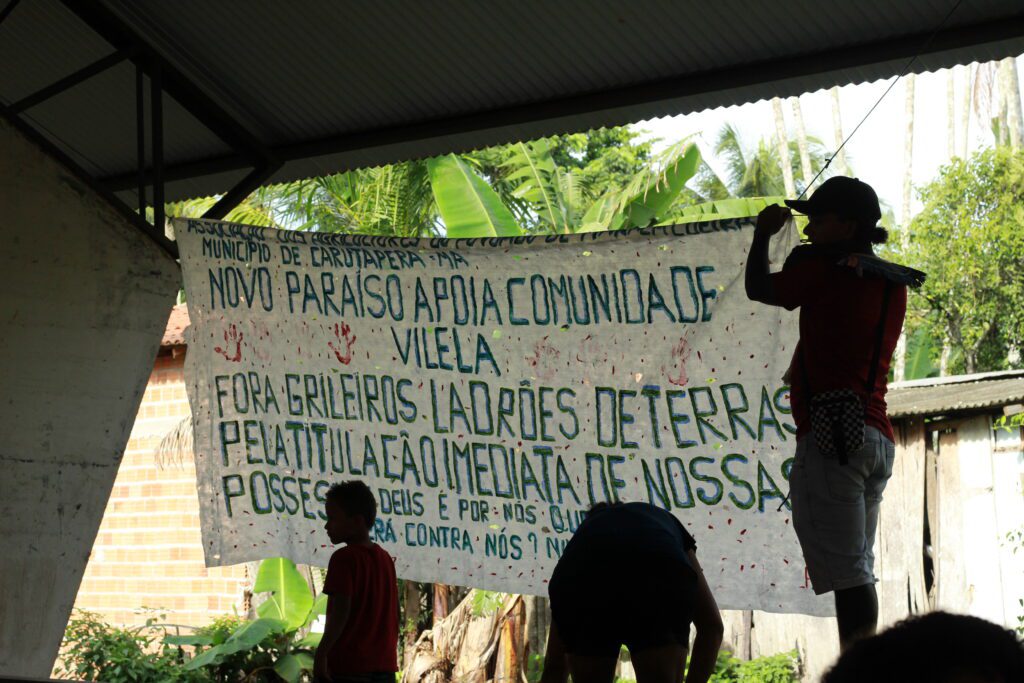
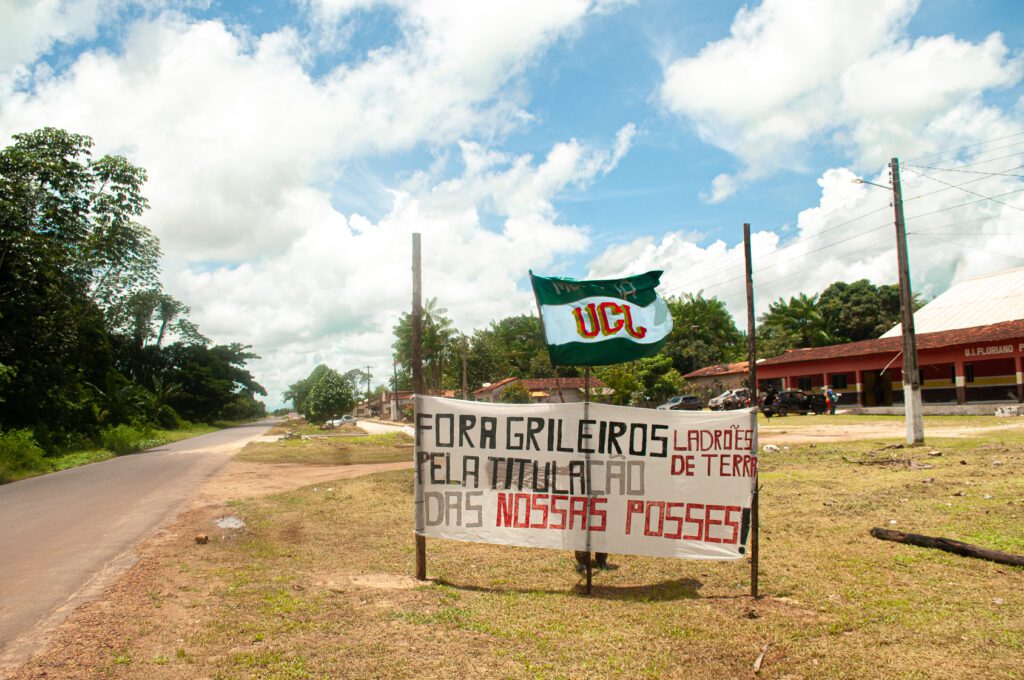
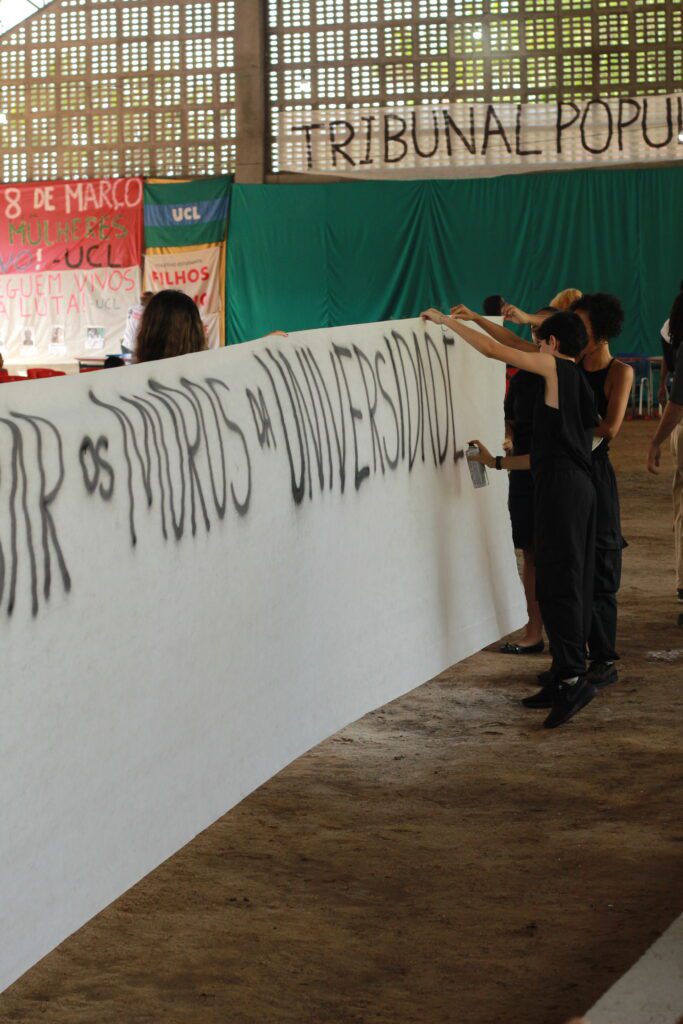
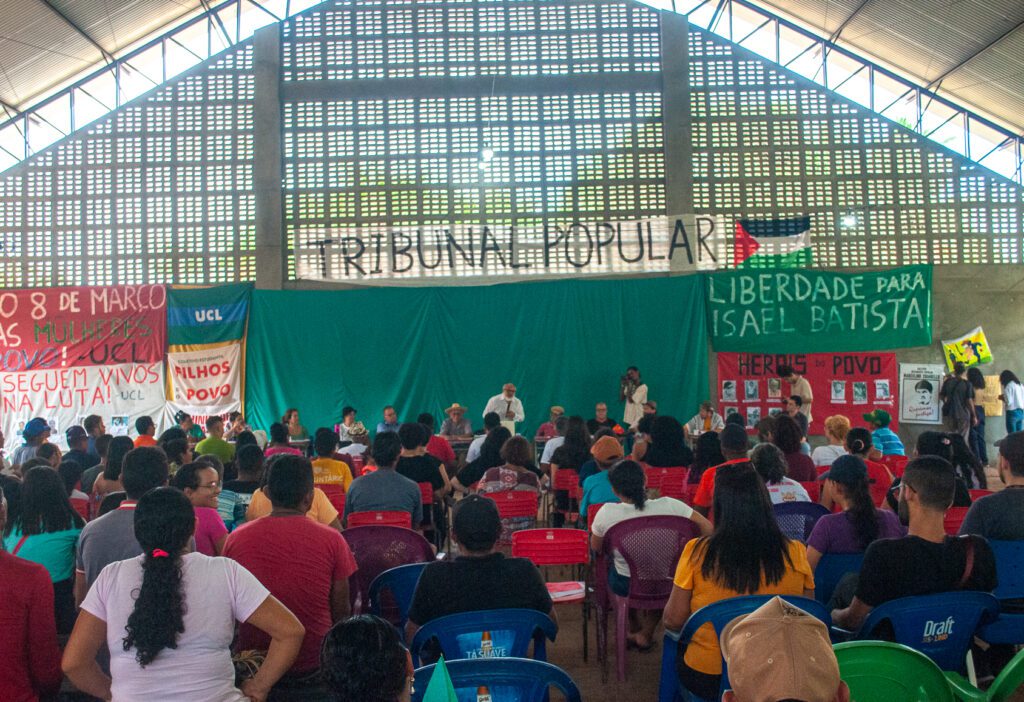
Throughout the auditorium, organizations flags and tracks with consigns of the land struggle decorated the environment. Right on the access road, a track Out land grabbers of our lands! By the title of our possessions! set the tone of the event. Inside the auditorium, other ranges condemned the grabbing, the large mining and called for the union of the peasants. The signatures were from squatters from different communities, such as Gleba Campina, Vilela village, Caranandeua and Jaraquara communities and the Association of Farmers of the village of Maracacura, the municipality of Carutapera.
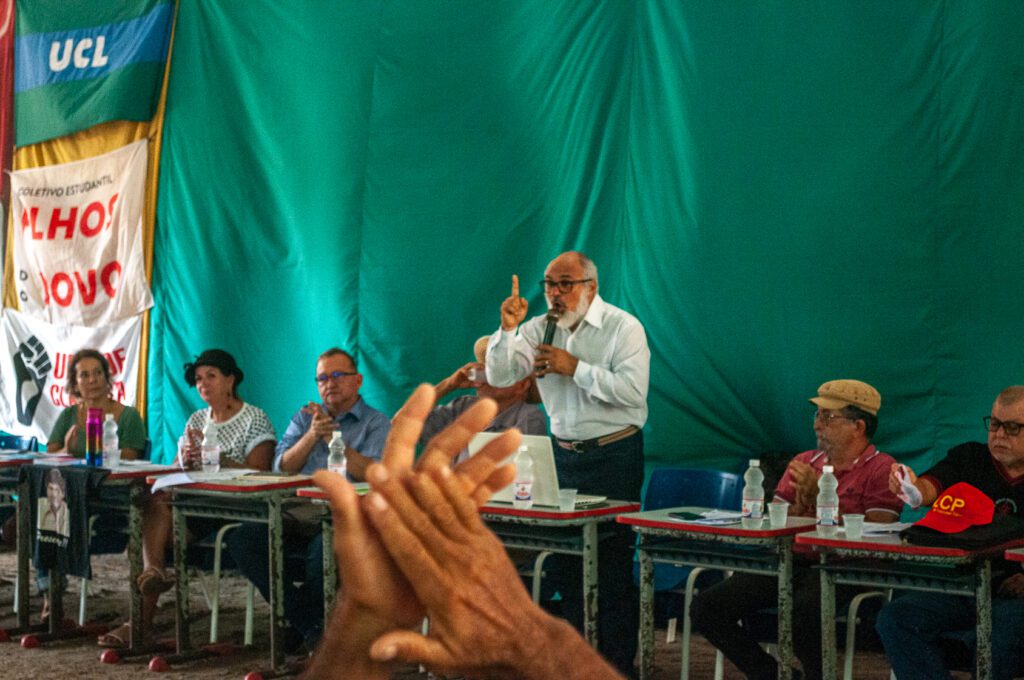
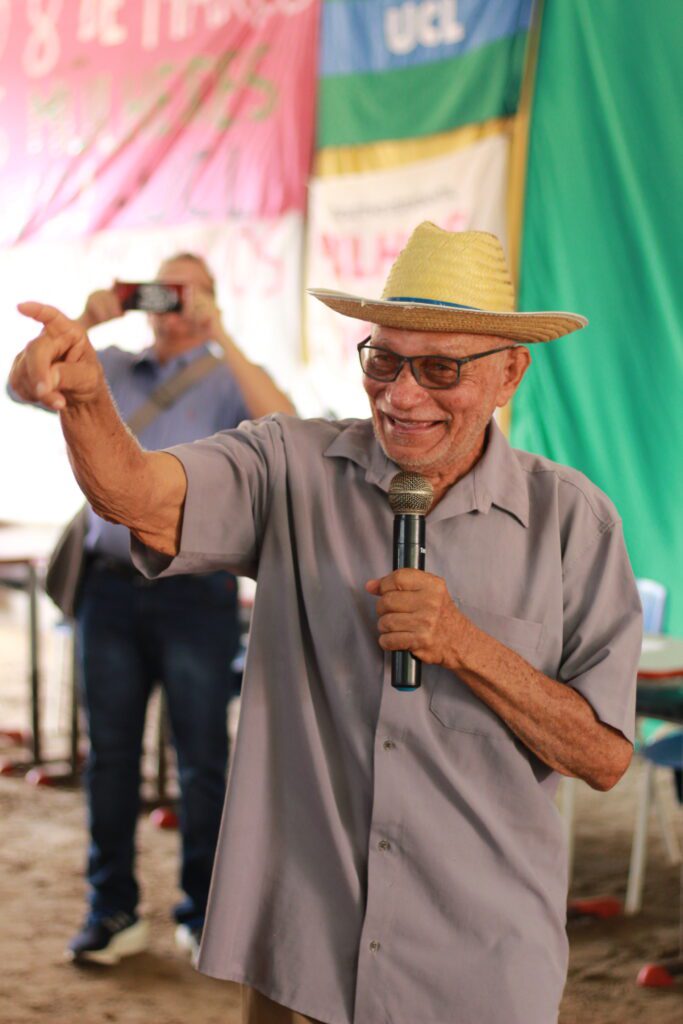
In one of the event's activities, the peasants organized a motorcycle caravan to visit the Gleba Campina and ascertain the crimes promoted by the land grabbers.
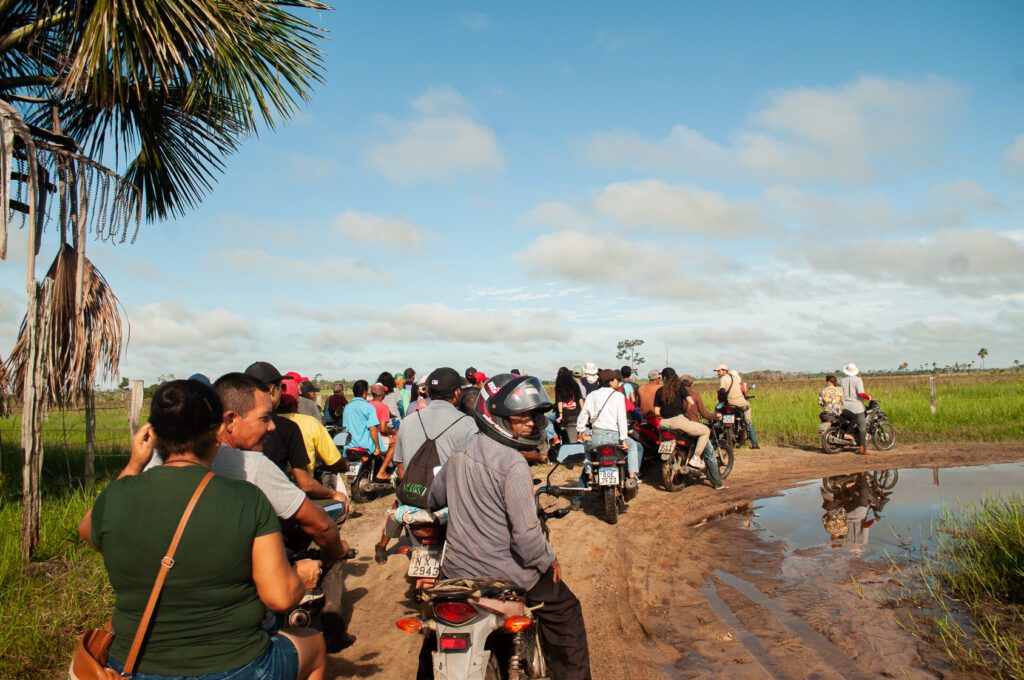
As a referral from the Popular Court, the present organizations called a day of mobilization and fight against the Maranhão State Grade Law to May 1st. The note can be read in full here .
In a joint statement, the Solidarity Committee for the Fight for Land (ComSolute) and the Union of Communities in Fighting (UCL) writes: “This is a victorious event in every way: to establish and unify a political agenda for the defense of rights. of the people; in producing legal material assistant to the cause of communities; in shaking those present around solidarity with the struggle for the land. ”
The note also makes a warm greeting to the student collective Filhos do Povo, who took a bus full of students. According to present, the Popular Court was a milestone in the development of the new student movement in Maranhão.
